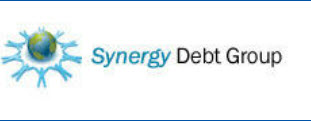Synergy Debt Group
Consumer debt increasing at slower pace
Most red ink is related to real estate; Record levels of indebtedness leave Canadians vulnerable to rising unemployment, interest rates
BY NICOLAS VAN PRAET, POSTMEDIA NEWS; FINANCIAL POST JANUARY 11, 2012 7:14 AM
Canadians are more indebted than ever before but the pace at which they're borrowing money is slowing.
Despite a reduction in consumer appetite for new credit in the fourth quarter of 2011, consumer debt loads continue to increase but at a much lesser rate than observed in previous years, according to the latest national credit report from Atlanta-based Equifax.
The average debt outstanding by Canadians - which includes credit cards, loans and lines of credit but not mortgages - rose 4.5 per cent during the last three months of 2011, to just under $6,000. That borrowing pace is about half of what it was the year before, when Canadians' outstanding debt balances grew at a rate of eight per cent.
"We are seeing that Canadians, even though they are not reducing their debts, they are not increasing them at the same rate as before," said Nadim Abdo, vice-president of consulting and analytical services for Equifax Canada. "That in itself is a positive."
Bank of Canada governor Mark Carney has repeatedly warned that consumer debt, which is sitting at record levels, has left Canada vulnerable to economic shocks such as a rise in unemployment or interest rates. He has called it the "greatest risk" to the domestic economy.
The vast majority of consumer borrowing is related to real estate, with outstanding mortgages over the $1-trillion mark.
In a bid to curb growth of consumer borrowing, the federal government has tightened mortgage lending rules three times over the past few years. But household debt levels, including mortgages, continued to grow, and now sit at just over 150 per cent of income, according to Statistics Canada.
The concern is that many Canadians would have difficulty making their mortgage payments if the employment picture declined significantly, potentially causing a rise in defaults, which in turn would trigger a series of negative repercussions with implications for lenders as well as the broader economy.
One of the big questions in recent weeks has been whether Canadians are paring down their hunt for credit or whether banks are tightening lending. What the Equifax numbers suggest is that demand for new credit in the latest quarter is about nine per cent less than it was in 2007. That year is considered a benchmark year when credit consumption volumes were normal before the recession.
Still, outstanding consumer credit balances remain at record highs. The only area where balances fell last year were credit cards, according to Equifax research.
Average outstanding credit card balances have, in fact, declined for the past five quarters in Canada, Equifax found. But Abdo said that doesn't mean Canadians are spending less.
Rather, he speculates they may simply be using money from their lines of credit to pay down their credit card balances, where the interest rates are typically higher. So Canadians are getting smarter with their money, right? Maybe. But the statistics also suggest they remain addicted to credit.
Another key aspect of consumer spending is what's happening with sales financing. Those are the "buynow-pay later" transactions that consumers use for everything from new televisions to washing machines.
Sales finance debt is increasing, the Equifax numbers show, growing by 18.4 per cent last year over the year before.
Those debts came under severe stress during the last recession, when many consumers bought stuff but then couldn't pay for it when the money came due. And their continued popularity now shows people still love the notion of paying at some future time.
Finally, the Equifax report found there was a remarkable improvement in consumer delinquencies and bankruptcies in 2011 as payments more than 90 days overdue declined to 1.4 per cent from a high of 1.8 per cent during the height of the 2008 recession.
The improvement equates to $1.9 billion. Consumer bankruptcies also dropped significantly.
End of article
~~~~~
About Synergy Debt Group
Synergy Debt Group enables consumers caught in the, "Minimum Monthly Payment Trap" to become debt free, providing an alternative to bankruptcy and the damages that come with it.
At Synergy Debt Group, we make it possible for our customers to achieve their financial
goals and gain independence from creditors quickly. If you are serious about getting out
of debt, preserving your credit, and saving money; give Synergy Debt Group a call today for
a free consultation.

No comments:
Post a Comment